by Dr. Beckie Weaver, former dean of the College of Allied Health
Are you a cranberry sauce fan? From a can or homemade? On top of your dressing or only on the side of your plate? Despite the significant debate, Americans will consume 80 million pounds of cranberries this week! One of few fruits native to North America, this little berry is primarily grown and harvested in New England. When Dr. Beckie Weaver, former dean of the College of Allied Health, retired to Cape Cod, Massachusetts, she was surprised to find a cranberry bog directly across the street.
The view from my retirement porch looks different from what I expected it to be like. We lived in Searcy from August 1984 until December 2020. Our only child and her husband had moved to Cape Cod, which is far from Arkansas, so we also moved to Cape Cod.
This is the view from our front porch. It is a cranberry bog. In our four years on the Cape, I have learned a lot about the cranberry harvest.

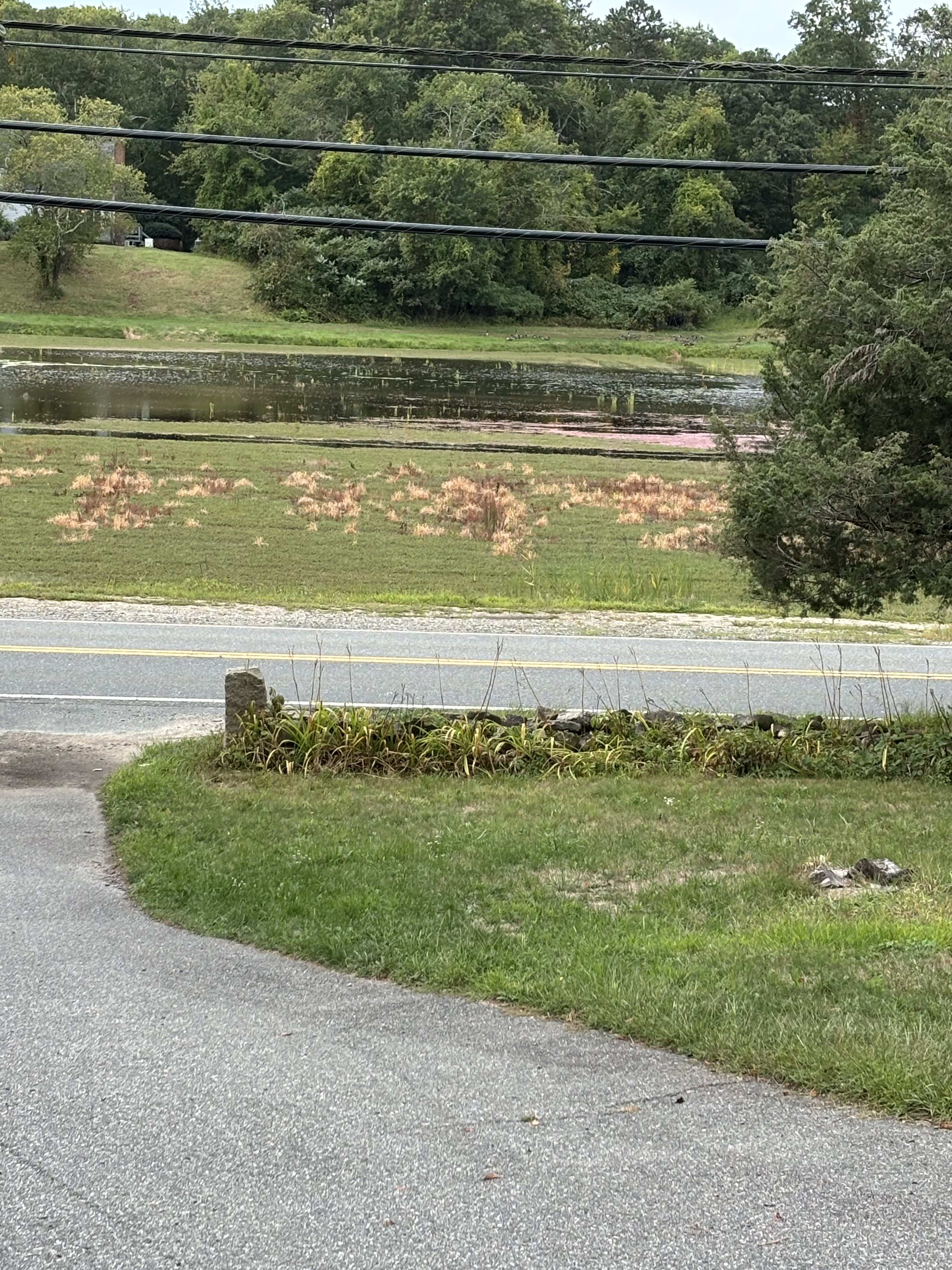
We live in the oldest town on the Cape. On the road behind our house, you will find the longest continuously used Quaker Meeting House in America. But the cranberry harvest across the street is the most interesting aspect of living on the Cape.
Harvest time is at least a two-day event, but like any crop, it is a multi-month process. In the spring and summer months, farmers seed the bog, pollinate the plants by bringing in bee hives and water the plants.
The harvest begins by first flooding the entire bog. Next the beater machine comes in to shake the bushes into releasing the berries.
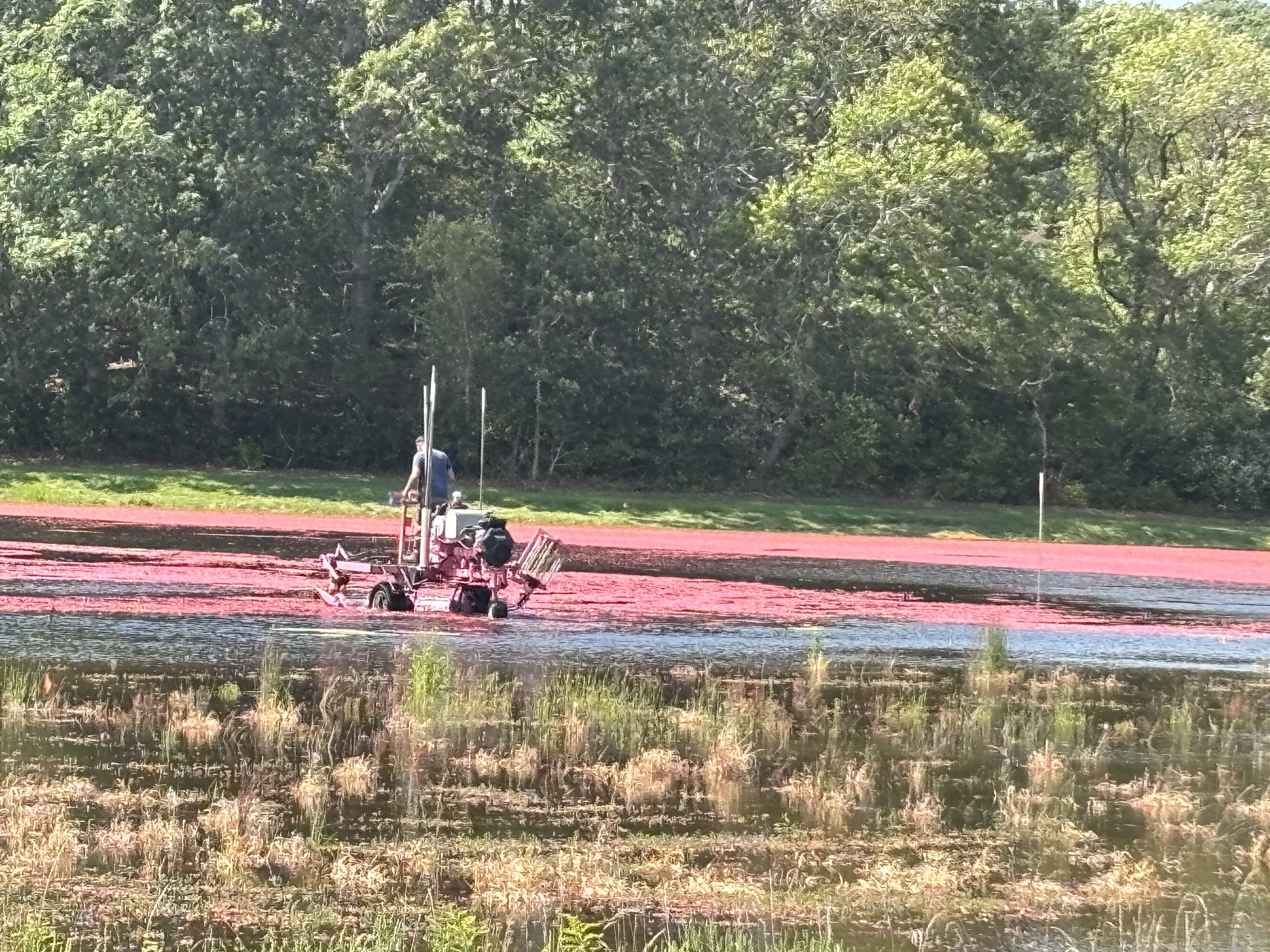
When all the berries have floated to the surface, they put a barrier in the water around the entire bog and gradually pull the barrier closer.
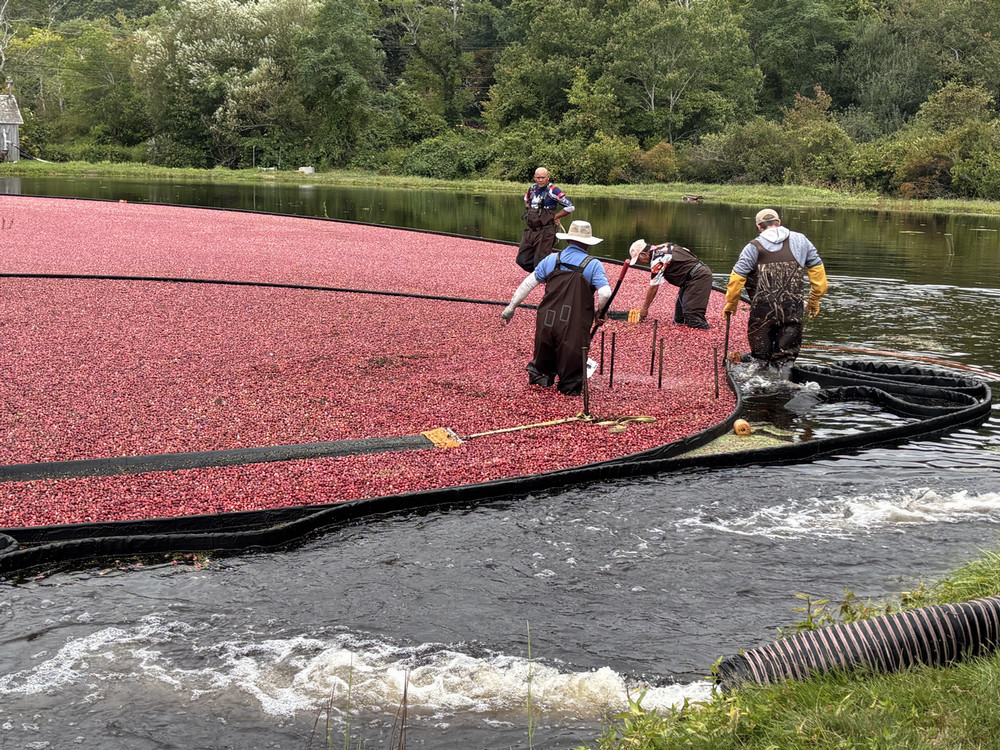
The six poles sticking up between the two men is the location of a vacuum that attaches to a wide tube and empties the cranberries into an 18-wheeler trailer. This bog fills two trailers.
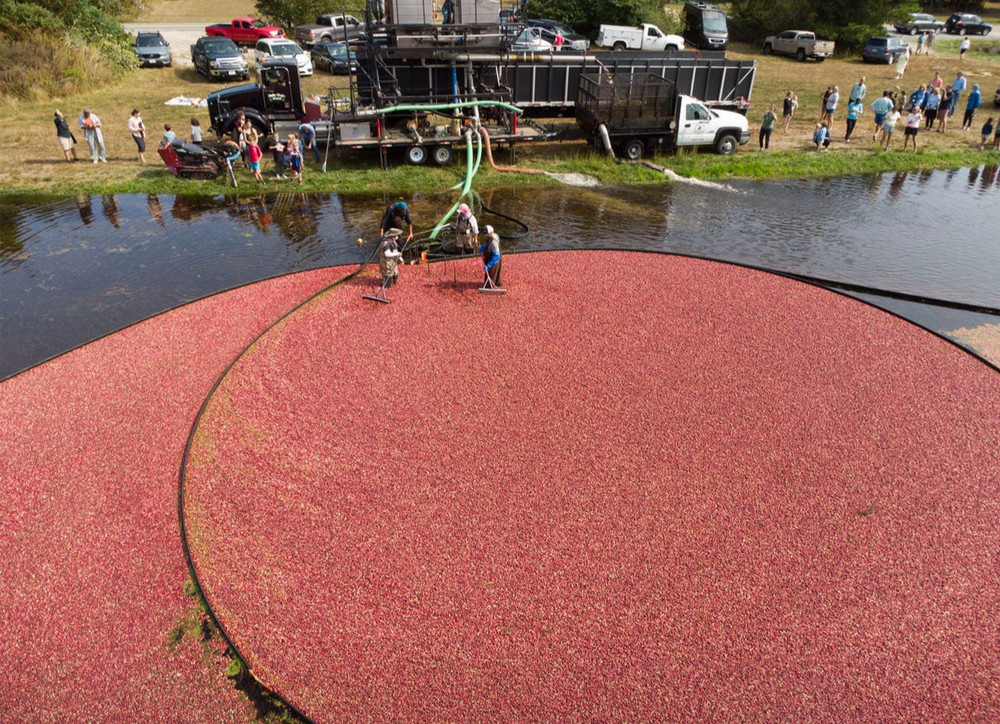
We live on the main road that runs east-west along the north shoreline of Cape Cod. It was the first roadway on the Cape and was named “Old Kings Highway.” Many of the early fall visitors travel this road and stop to watch the harvest.
After being pumped into the vacuum tube, they are emptied into a large trailer. 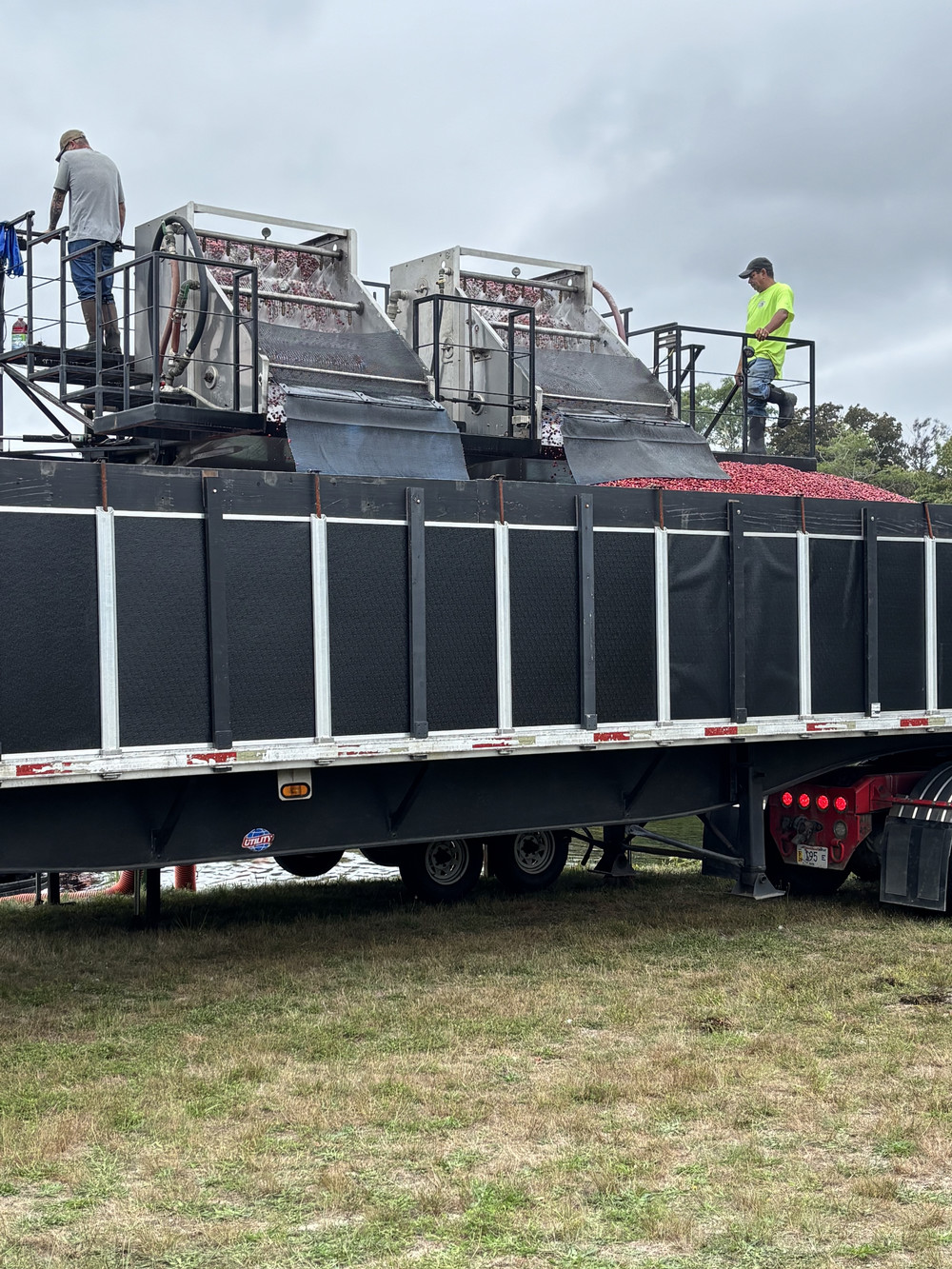
The cranberry harvest is a huge event that has become a spectator sport. Even tour buses stop for the passengers to get off the bus and watch! I will confess that I have even taken a beach chair down to the front of our yard to sit and watch the process.
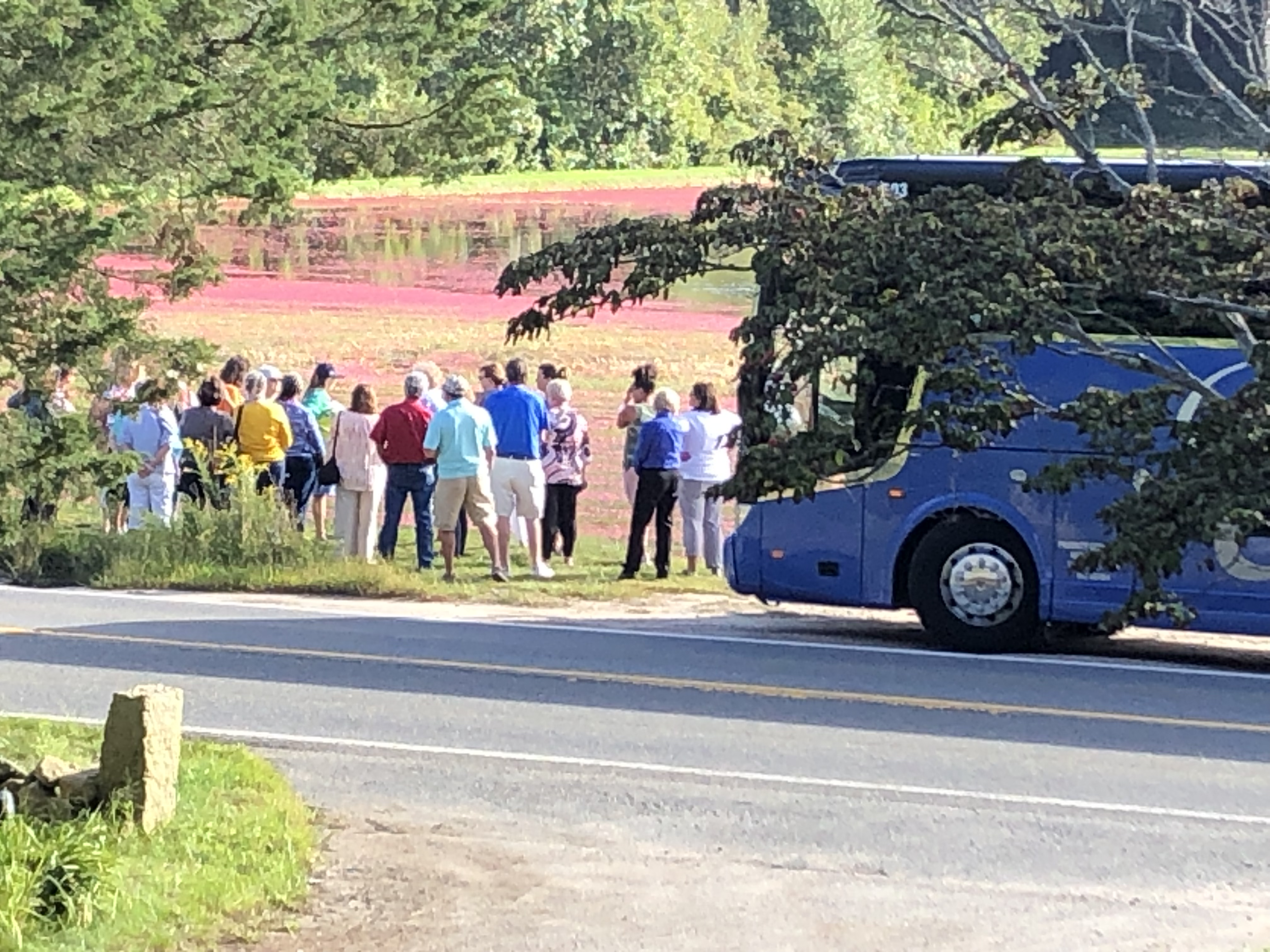
The owner of this bog sells his entire crop to the Ocean Spray processing plant located about 20 miles away. You may have cranberry relish on your table this Thanksgiving that came from the bog across from our house!
I have noted several differences between New England and Arkansas. First, spelling Massachusetts is much harder than spelling Arkansas. It took me several weeks to finally have the word stored correctly in my memory.
Second, evidently, I have a more noticeable Southern accent than I thought. If I happen to let a “y’all” slip out of my mouth, someone will ask where in the South I come from.
The citizens of Massachusetts are very patriotic. They hang flags and bunting that stay up from Memorial Day until Veterans Day! They decorate their yards and houses for Halloween with all manner of skeletons and jack-o-lanterns. They also go all out for Christmas.
The locals refer to Cape Cod as “The Cape,” but only native-born residents are “Cape Codders.” I quickly learned that I am considered a “washashore” since I am not a native.
Despite my professional training as a speech-language pathologist, I still can not pronounce the town names Peabody and Quincy to sound like the natives. They say Peebeedy and Quinzee.
The term “snowbird” refers to individuals who live north of the Mason-Dixon Line who head south when cold weather arrives, and my husband and I are official snowbirds. We head south after Christmas.
Even though there are many notable differences between Arkansas and New England, the people on The Cape are exactly like my friends in the South in so many ways. If we smile at them, they smile back, and if you engage them in conversation, they will engage with us. I think the best lesson I have learned is that change is sometimes hard, but it can be really good for us. Changing your location is really just changing your location, and we can be back in Arkansas by purchasing an airplane ticket!